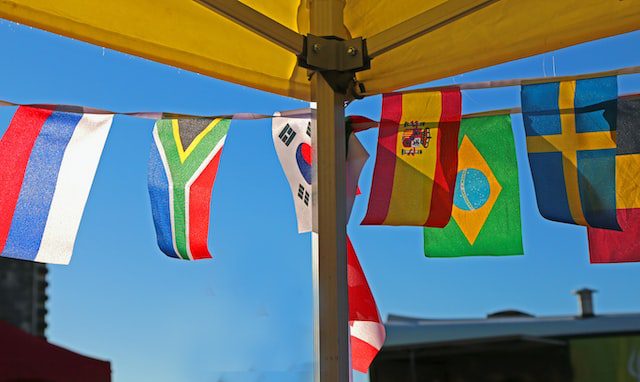Scholarship details
Japan has formed a partnership. Scholarships from the World Bank are available at the University of Tsukuba for World Bank Member Developing Countries. The scholarship allows you to enroll in a Masters level program(s) in Economics or Public Policy at the University of Tsukuba in Japan. The scholarship deadline is February 5, 2022. The degree is called M.A. in International Public Policy.
The Joint Japan/World Bank Graduate Scholarship Program (JJ/WBGSP) is a scholarship program open to citizens of certain developing countries who have relevant professional experience and a long history of supporting their countries’ development efforts while pursuing a master’s degree in a development-related field.
The JJWBGSP offers scholarships for 48 Participating Programs in essential areas of development, including as economic policy management, tax policy, and infrastructure management, at select universities in the United States, Europe, Africa, Oceania, and Japan.
About the Scholarship:
Following the relocation of its predecessor, the Tokyo University of Education, to Tsukuba, the University of Tsukuba was established in 1973
The main campus of the institution is 258 hectares and is still housed in Tsukuba Science City, a science park built in the 1960s. Tsukuba has one researcher for every ten citizens. More over 30% of Japan’s national research institutes are located in this city, which is northeast of Tokyo. Tsukuba University also has a Tokyo campus that offers graduate-level evening courses.
With international cooperation agreements with North Africa and Central Asia, the university places a strong emphasis on multidisciplinary studies and internationalization.
Around 70 present and previous students from the university have competed in Olympic Games. The institution also conducts research on the international sporting event and offers courses on it. Meanwhile, three Nobel laureates have come from the university: previous presidents Sin-Itiro Tomonaga and Leo Esaki won the physics and chemistry awards, respectively, in 1965 and 1973, while professor emeritus Hideki Shirakawa earned the chemistry prize in 2000.
Jigoro Kano, the founder of the Kodokan Institute, the global judo headquarters, was also the head of the Higher Normal School and Tokyo Higher Normal School, both of which were predecessors to the university.
“Imagine the future,” says the institution’s slogan.
Tsukuba is a city in Japan’s northern Kant region. Mount Tsukuba is notable for its double peaks and is also known as the “purple mountain.” Tsukuba University is unusual in many aspects. Unlike other Japanese universities, the undergraduate education system is organized by college clusters and offers extensive support for a wide range of extracurricular student activities and campus life. All faculty members are graduate students, and research is a top concern. It covers a wide range of academic subjects in which in-depth research and instruction are done as one of Japan’s major universities.
The “Open University” system is one of the University of Tsukuba’s foundational ideals. The university has made a concerted effort to engage with Tsukuba Science City’s research institutions and to improve contact with society and the local community. This paradigm has become deeply embedded in our educational, scientific, and societal contributions systems over time. All Japanese national universities became national university businesses on April 1, 2004. While a more independent and flexible structure of university management is now feasible, autonomy and accomplishments are being questioned and evaluated. All national universities have attempted a range of reforms in order to reinforce their distinct and distinguishing characteristics.
In terms of scholarships, the University of Tsukuba works with the Japan Scholarship Foundation, local governments, and private scholarship groups. Only individuals who are intellectually and personally exceptional, but who are having problems meeting tuition requirements, are eligible for these organizations’ scholarships. Tuition exemptions are available for students who qualify. They might be excluded from the entire tuition price or half of it. There is also a system in place that allows for the deferment of tuition payments or the payment of tuition fees in monthly installments.
The main Tsukuba campus is the largest single campus in Japan, covering 258 hectares (636 acres). In addition, both the university and the city are surrounded by stunning natural beauty. However, it is not far from the metropolitan area. The Tsukuba Express, which began service in the summer of 2005, now takes 45 minutes to connect downtown Tsukuba with Akihabara, Tokyo.
Scholarship Sponsor(s): University of Tsukuba
Host Country(s): Japan
Scholarship Worth: Fully Funded
Study Level: Masters
Nationality: Citizen of world bank countries
Scholarship Offer:
The University of Tsukuba will offer the following scholarship benefits per year to the students who are chosen for this prize.
- full tuition fees
- monthly subsistence allowance
- medical insurance
- travel expenses
Eligibility for Scholarship
- Possess a bachelor’s degree or its equivalent, as well as an excellent academic record.
- At the time of application, have at least two (2) years of full-time professional working experience (earned after a university degree). To be able to pursue education, you must have excellent oral and written English communication abilities.
- Maintain a healthy lifestyle.
- Agree to return to his or her native country after completing the Program’s coursework.
- Be a national of a World Bank member developing country
- Not hold dual citizenship of any developed country;
Nationality
Joint Japan World Bank Scholarship – the University of Tsukuba is open to all citizens of eligible developing countries among the world bank member countries.
| Afghanistan |
| Algeria |
| Angola |
| Armenia |
| Azerbaijan |
| Bangladesh |
| Belize |
| Benin |
| Bhutan |
| Bolivia |
| Burkina Faso |
| Burundi |
| Cabo Verde |
| Cambodia |
| Cameroon |
| Cape Verde |
| Central African Republic |
| Chad |
| Comoros |
| Congo, Dem. Rep. |
| Congo, Rep. |
| Côte d’Ivoire |
| Djibouti |
| Dominica |
| Egypt, Arab Rep. |
| El Salvador |
| Eritrea |
| Eswatini |
| Ethiopia |
| Fiji |
| Gambia, The |
| Ghana |
| Grenada |
| Guinea |
| Guinea-Bissau |
| Guyana |
| Haiti |
| Honduras |
| India |
| Indonesia |
| Iran, Islamic Rep. |
| Iraq |
| Kenya |
| Kiribati |
| Kosovo |
| Kyrgyz Republic |
| Lao PDR |
| Lebanon |
| Lesotho |
| Liberia |
| Libya |
| Madagascar |
| Malawi |
| Maldives |
| Mali |
| Marshall Islands |
| Mauritania |
| Micronesia, Fed. Sts. |
| Mongolia |
| Morocco |
| Mozambique |
| Myanmar |
| Nepal |
| Nicaragua |
| Niger |
| Nigeria |
| Pakistan |
| Papua New Guinea |
| Philippines |
| Rwanda |
| Samoa |
| São Tomé and Principe |
| Senegal |
| Sierra Leone |
| Solomon Islands |
| Somalia |
| South Sudan |
| Sri Lanka |
| St Lucia |
| St Vincent |
| Sudan |
| Syrian Arab Republic |
| Tajikistan |
| Tanzania |
| Timor-Leste |
| Togo |
| Tonga |
| Tunisia |
| Tuvalu |
| Uganda |
| Ukraine |
| Uzbekistan |
| Vanuatu |
| Venezuela |
| Vietnam |
| West Bank and Gaza |
| Yemen, Republic of |
| Zambia |
| Zimbabwe |
Application Procedure
If you want to begin the application process for this scholarship, you must first complete two important procedures. These steps are as follows:
- Complete the online application form.
- Submit two letters of endorsement
When filling out the application form, you will be asked to provide information about yourself and your work. You may find a step-by-step guidance to the entire application procedure by clicking the icon below.
Required Documents
- Two online recommendation letters from people who are familiar with the applicant’s professional work experience.
- One completed Application Form in either English or the language of their master’s degree program (which includes an applicant’s consent to the conditions indicated on the Signature Page of the Application Form). (A completed Application Form written in French by an applicant requesting a scholarship to attend a preferred university in the United Kingdom, for example, will be ignored.)
Note
The Joint Japan World Bank Scholarship is concerned with accelerating development in underdeveloped nations, which is why it seeks applicants from both developing and developed countries, as well as individuals with development-related professional experience.
This Master’s program will prepare you to become one of the finest in your area, in addition to sending you abroad to study. Several scholarship recipients have returned to their home countries and received advancements at their workplaces.
Admission deadline:
The application deadline for the Joint Japan World Bank Scholarship – the University of Tsukuba is 05 Feb 2022.
GoodLuck!





















